Delegates voted on 21 resolutions during the Saskatchewan Association of Rural Municipalities (SARM) Mid-Term Convention in Saskatoon on Wednesday.
They were a mix of how SARM conducts business at its conventions to lobbying the provincial and federal governments on a variety of issues.
For example, the R.M. of Elfros No. 307 introduced three resolutions related to SARM. One was to limit a President and Vice-President’s term to three consecutive two-year terms, so it “brings new ideas, relationships, knowledge and energy to the positions every few years.” reads the resolution.
“There’s very little value in developing leaders if you’re not making room for those leaders to become leaders. By putting term limits on your presidency and your executives you allow room for renewal to happen in your organization.” said Jeremy Welter, Division Two Councillor for the RM of Mariposa in favour of it.
“I just want to remind everybody that there’s an election every two years for president and vice-president and if you don’t like the way things are going, step up.” said Doran Scott, the administrator for the RM of Blucher, who spoke against the motion.
When it came to voting time, it was defeated with 74 percent of delegates voting against term limits. The last SARM President Ray Orb was in the office for 10 years. Current provincial cabinet minister David Marit spent a similar amount of time as SARM president prior to Orb’s term.
The second resolution was to change the requirement of passing bylaws from a simple majority of 51 per cent to two-thirds majority. It was defeated with 63 per cent of delegates opposed to it. In fact, all of the resolutions voted on had 60 per cent or more support. And the third resolution from the R.M. of Elfros called for at least two R.M. representatives on SARM’s Agriculture and Economy Committee. That was approved with 61 per cent in favour.
Regulations for Wind Turbine projects
The R.M. of Weyburn introduced a resolution calling for a moratorium on wind projects until the provincial government introduces regulations for municipalities to follow. Division Five Councillor Josh Mainil says there has been local opposition to a proposed wind project, and he wants provincial guidelines to assist council in making a decision. “We’ve done our best to research and learn about the potential issues a project like this presents, however these green projects are quite controversial in the province and in our R.M. in particular. Where is the provincial government? More importantly, where is SaskPower in helping R.M.s answer the hard questions from our ratepayers that will be affected by these projects?” added Mainil.
“There’s just too many unanswered questions with wind power and if our government’s not willing to step up and be the leader that they should be in this instance, then I totally agree with this – there should be a moratorium against wind (power) until somebody steps up and takes control,” said Dwight Bouchard with the RM of South Qu’Appelle, “I was just in an energy meeting – an open mic meeting basically – and it seemed to me in that group there was a lot of unanswered questions to move ahead with something and leaving us to kind of flail in the wind isn’t right by our government so I agree with this.”
Jeff Weal, a Division Four Councillor in the RM of Lake of the Rivers in the Assiniboia region, agreed there needs to be guidance by the province, noting his R.M. has windmills but had to do all of the research prior to that.
There are eight wind farms in operation in the province, with a combined net capacity of 615 megawatts (MW). There are also several other wind power projects in development.
In the end, 89 per cent of delegates voted in favour of the motion for SARM to lobby the province for these regulations for wind turbines and to have a moratorium on projects, if the province isn’t willing to implement standards.
Capital Gains Tax
There was a resolution on proposed federal changes to the capital gains tax. It called for SARM to lobby the federal government “to reconsider and rescind the changes to the capital gains inclusion rate that came into effect on June 25, 2024” and to lobby Ottawa “to engage in a thorough review of the long-term economic impacts of the proposed changes and consider alternative options that could help achieve their intended tax revenue goals without adversely affecting the Canadian economy and the agriculture industry.”
“Somebody has a spending problem in Ottawa and now they’re coming after your money,” Darren Steinley with the RM of Excelsior told the crowd, referencing Prime Minister Justin Trudeau and the Liberal government. “This is detrimental to people who are investing in agriculture land and it’s not good for long-term family farms and I’ve also spoken with some doctors…that are really against this tax and we’re having enough trouble keeping doctors in rural Saskatchewan and this is another detriment to doing that so, I just ask you to vote in favour of this resolution.”
The resolution had one of the highest approval ratings compared to others, passed by more than 96 percent of delegates.
Other resolutions passed
A resolution introduced by the R.M. of Battleford No. 437 proposed SARM lobby the provincial government “to remove additional red tape and costs to construction by reverting back to the base Tier 1 requirements for energy standards and come in-line with neighboring provinces” such as Alberta and Manitoba. That passed with a result of 223 in favour to 53 against.
The R.M. of Moose Jaw No. 161 introduced a resolution for the Ministry of Highways to provide funding for traffic lights at the intersection of Highway 1 and 9th Avenue NW in the City of Moose Jaw. The R.M. cited accidents and “close calls” at that intersection over several years due to confusion with the north service road and impatient drivers as a reason for wanting lights to be installed within two years until “a more permanent and viable solution can be implemented.” It got approval from 79 per cent of members.
The R.M. of Manitou Lake No. 442 submitted a resolution regarding standards for highway ditch mowing. It wants SARM to lobby the Ministry of Highways “to establish a policy of an annual 10 metre minimum cut with a 4-year rotation of a full cut for all highways other than four-lane highways.” The resolution says doing it this way will improve wildlife visibility which would result in fewer accidents, fewer injuries, reduced costs for SGI, and improved safety for motorists. It was approved with 242 in favour to 35 opposed.
A resolution jointly submitted by the R.M. of Silverwood No.123 and R.M. of Willowdale No. 153 was approved by 87 per cent of delegates that calls on “SaskPower and the Minister Responsible for SaskPower to recognize the not-for-profit nature of municipal rinks and the value that they provide by offering a reduced electrical rate for all municipal owned rink facilities.”
Another SaskPower related resolution, introduced by the R.M. of Britannia No. 502, directs SARM to lobby the Crown Corporation “to subsidize or lower the costs for service connections to new rural residences until the housing crisis/shortage in Canada has been resolved.” 72 per cent of members voted in favour of it.
The R.M. of Aberdeen No. 373 wanted SARM to lobby Saskatchewan and Ottawa to have municipalities included in the list of eligible employers for the Canada-Saskatchewan Job Grant. That resolution is a response to the R.M. having difficulty recruiting qualified staff, such as Class 1-A Drivers, as well as covering costs of sending employees or new applicants to training. “Providing municipalities access to the grant expands the pool of qualified candidates and enables the municipality to provide opportunities for growth and flexibility.” reads the resolution background. It was approved by 245 delegates compared to 26 opposed.
Members of SARM also voted 89 per cent in favour of calling on “Health Canada’s Pest Management Regulatory Agency (PMRA) to restructure the guidelines and reinstate the use of strychnine to control mass populations of Richardson’s Ground Squirrel while meeting current standards for environmental protection.” The R.M. of Eldon No. 471 was the one who submitted the resolution alongside several others.
The last resolution introduced by the R.M. of Meeting Lake No. 466 called on SARM to lobby the Information Services Corporation (ISC) to incorporate a reasonable and fair fee schedule. The R.M. noted land registry fees kept increasing as “ISC goes according to title and abstract value. With a significant increase in land transfers and mortgage registration
fees and the increase in farmland, its putting unnecessary, additional financial strain on farmers.” In response, 94 per cent of voters were in favour of the resolution.
You can find information on all the resolutions introduced at the mid-term convention down below.
https://sarm.ca/wp-content/uploads/2024/10/2024-Midterm-Resolution-Listing-Final-With-Background.pdf







